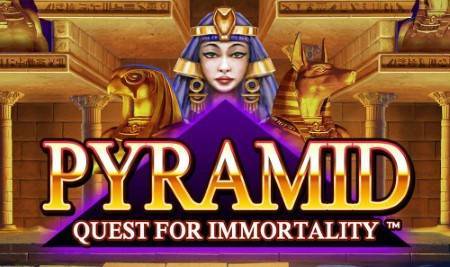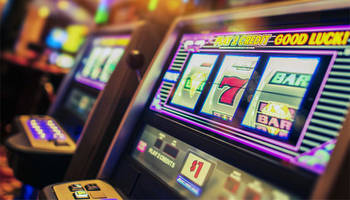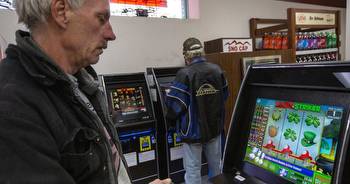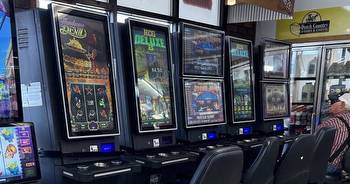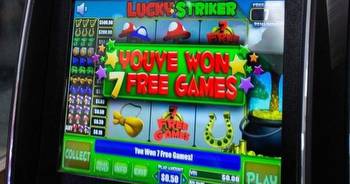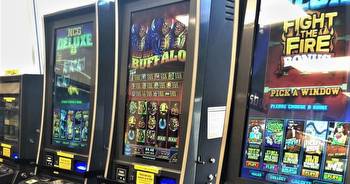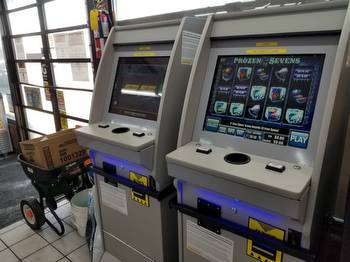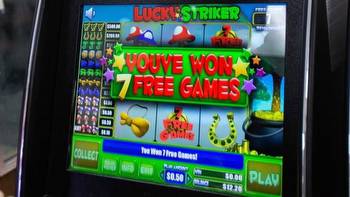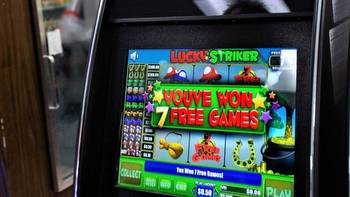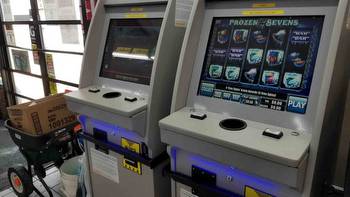Missouri slow to act on illegal slot machines
Jack Suntrup St. Louis Post-Dispatch
JEFFERSON CITY – In the wake of a recent ruling that a Kansas company's unregulated slot machine-style games were illegal, Missouri officials are now divided on how to move forward with policing roughly 14,000 similar devices deployed at gas stations and bars across the state.
The Post-Dispatch obtained a draft letter from state liquor regulators to licensees informing them of the Sept. 22 ruling by a Platte County Circuit Court judge, but emphasizing the judgment was "not final at this time" while the company, Integrity Vending LLC, appealed.
Senate President Pro Tem Dave Schatz, R-Sullivan, said the letter was "probably not strong enough." He said he wanted the state to give businesses time to unplug the games before facing suspension or revocation of their liquor licenses, but said he understood officials' caution, given that appeals are possible.
The court ruling has touched off a new chapter to an old debate in Jefferson City – whether to go after, and how to go after, the companies deploying and operating unregulated gambling devices.
Integrity Vending, based in Shawnee, Kansas, faces a $10,000 fine after being convicted of promoting illegal gambling in the first degree, a class E felony. The draft letter says the company could appeal the ruling after it is sentenced on Nov. 23.
"We appreciate the commitment from our licensees to ensure that their conduct follows all applicable laws," the letter, from the Missouri Division of Alcohol and Tobacco Control, says.
Schatz provided the document to the Post-Dispatch and said the state hasn't sent it to businesses.
The games, set up in gas stations and bars, operate similarly to casino slot machines in that a player deposits money with the chance of winning or losing money by placing a bet.
Because the games are unregulated, there are no consumer protections to prevent low payouts, no money is directed to public education and no resources are available for addicted gamblers.
Schatz's desire for the state Department of Public Safety to start pulling liquor licenses from noncompliant gas stations and bars would mark an escalation in the state's efforts to police the games.
This year, the Missouri Highway Patrol, had as of Oct. 6 forwarded 72 probable cause affidavits to local prosecutors for illegal gambling charges, an agency spokesman said in an email.
But most prosecutors, at least before the Platte County ruling, had been reluctant to file charges.
Senate Budget Chairman Dan Hegeman, R-Cosby, included $150,000 in this year's budget for investigations of the devices. The money was earmarked for the attorney general's office, which enforces consumer protection laws.
Gov. Mike Parson withheld the money this summer amid lagging revenue projections, temporarily stopping any action. With a more favorable budget forecast, his administration released the funds this month, but Attorney General Eric Schmitt is still reluctant to spend the money.
"We're currently reviewing the decision in Platte County and, as there are likely to be appeals, we're watching the case as it moves through the court system to determine the best path forward and potential next steps," said Chris Nuelle, spokesman for Schmitt, a Republican.
Hegeman wouldn’t say what steps Schmitt should take, but said the state Department of Public Safety – which includes the Highway Patrol and Division of Alcohol and Tobacco Control – should start cracking down on operators given the Platte County decision.
"I'm pleased with the court's ruling," he said. "The next step in my mind would be DPS, the Highway Patrol and Liquor Patrol enforcing the law and removing these illegal machines."
But at least one company is betting it can fend off a felony gambling conviction by arguing its machines are "modulated differently" than others.
Gregg Keller, a Missouri Republican political operative and spokesman for Torch Electronics, based in Wildwood, Missouri, said Integrity Vending's games were "critically different from" Torch's, "an argument we're confident we can win in a court of law if it comes to it."
Asked how the games were different, Keller said in an email: "Torch games are proprietary and modulated differently such that they're critically different from those in the Platte County case."
He then referred to an illegal gambling charge brought by the Linn County prosecutor that a judge dismissed this summer, citing a lack of probable cause.
The company's political donations have been an issue in the Missouri governor's race.
Democratic State Auditor Nicole Galloway, running against Parson, a Republican, has criticized his administration for withholding the gambling funds over the summer, and has referred to $20,000 in contributions Torch has made to Parson's election effort.
State Rep. Justin Hill, R-Lake Saint Louis, tweeted a picture last Wednesday of slot-style games at a gas station in St. Peters. He mentioned the Missouri Gaming Commission, saying, "a new casino just opened up in St. Peters. What are you all doing?"
Galloway responded that "@MissouriGaming would love to do something about it. But lobbyists killed the bill to outlaw the machines and @MikeParson cut the investigative unit to look into the games after those same lobbyists donated to his campaign."
One of Torch's two lobbyists is former House Speaker Steve Tilley, R-Perryville, a close ally to Parson who has raised money for the governor's election effort.
Schatz said Torch was a player in an effort earlier this year to kill a Senate bill clearly outlawing Torch-like games.
Legislation backed by Schatz, Hegeman and Sen. Mike Cunningham, R-Rogersville, ran into opposition from multiple factions.
In one group were the senators who wanted to clearly outlaw the games without simultaneously approving an expansion of legal gambling.
The second group backed legislation that outlined what was illegal but simultaneously allowed for an expansion of legal gambling.
And the third group opposed Schatz's push to clearly outlaw machines already deployed and possibly banning operators of those games from participating in any future gambling expansion.
"Our legislation ... took the ambiguity out of whether or not these things are legal or not," Schatz said. "It enhanced the penalties by potentially removing their liquor licenses, losing their lottery license, or the ability to participate in a future expansion if they are found to be breaking the law.
"And so I don't think that they (Torch) were too interested in seeing that passed," Schatz said.







